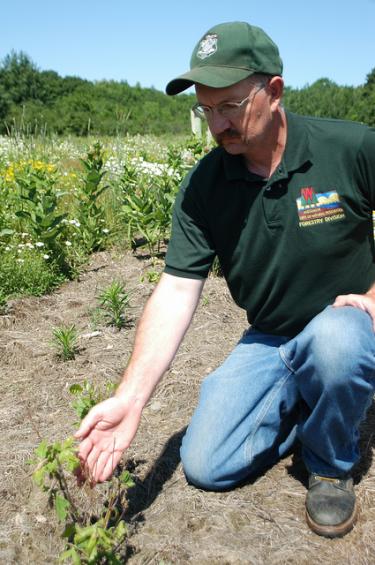The Right Type of Forester
You can access the services of many different kinds of foresters, who work in different types of organizations and may have slightly different skills and approaches.
Many state forestry agencies have service foresters that work with landowners to improve forestry on the ground. Service foresters are assigned specific counties and tend to have a good sense of local conditions, and the threats and opportunities they present. Service foresters can also help you access government grant and cost-share programs. In many states, service foresters do free walk-throughs with woodland owners and offer advice for health maintenance and woodland improvement. In some states, service foresters can also write management plans. Some states do charge fees for their services.
A consulting forester is an independent professional who works under contract to help woodland owners manage their woods. You can hire a consulting forester to work on a specific project (such as thinning a stand or managing a timber sale), or you can hire him/her to provide ongoing management services. Consulting foresters provide a more comprehensive suite of services than state service foresters, and often have a network of loggers and other service providers to implement forestry projects.
You might also have access to two other kinds of foresters in your area--extension foresters and industry foresters. Extension foresters are employed by local college/university extension services and their role is primarily educational. They create materials and give public talks about specific forestry issues but rarely offer individual advice or services to woodland owners.
Industry foresters are employed by timber or forest product companies to provide free counsel and services to woodland owners in their area. Some companies see this as a cost-effective way to ensure that the landowners from whom they purchase raw material are managing their woods sustainably, thus ensuring future supplies of raw material. Industry foresters were fairly common up till about a decade ago; now, their numbers have declined precipitously and their services are available only in very few places.
It is always good to contact your local county or district service forester for help first. However, because budgets are stretched, it may be a while before he or she can slot you into the schedule. Also, in most states, they do not actually perform services such as writing management plans or assisting with a timber harvest. So, you may need to work with an independent or consulting forester to implement your service forester's advice.
In any case, many woodland owners prefer to hire an independent forester that is working for them--they feel that this makes it more likely that the forester will advise them based on their needs and preferences rather than a broader public agenda. The next section provides guidance on how to choose and engage a consulting forester that fits your needs.
Find out more
Learn more about the role and services of consulting foresters from this handbook prepared by the University of Arkansas Cooperative Extension.
How can I get more tips?
It’s simple! Enter your email below.

